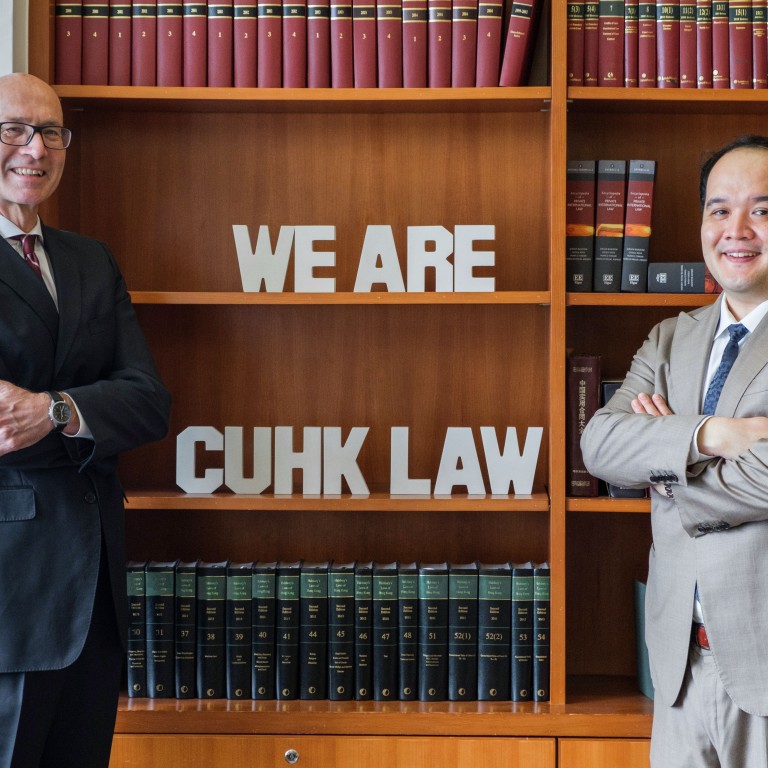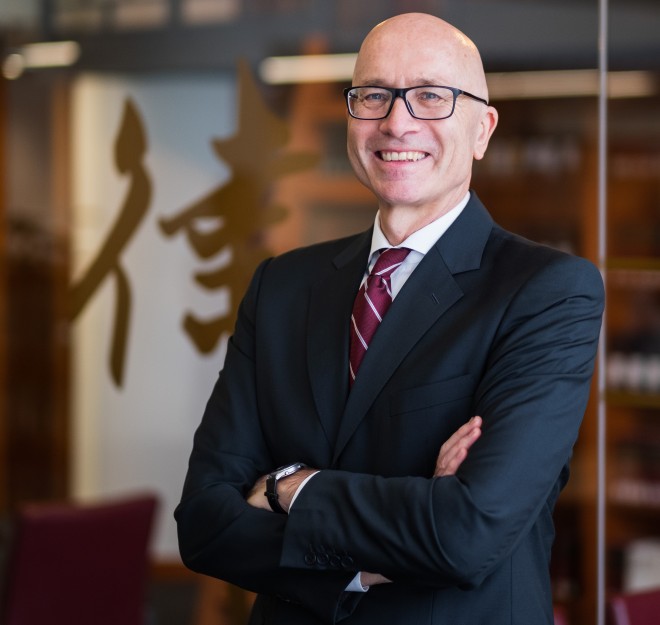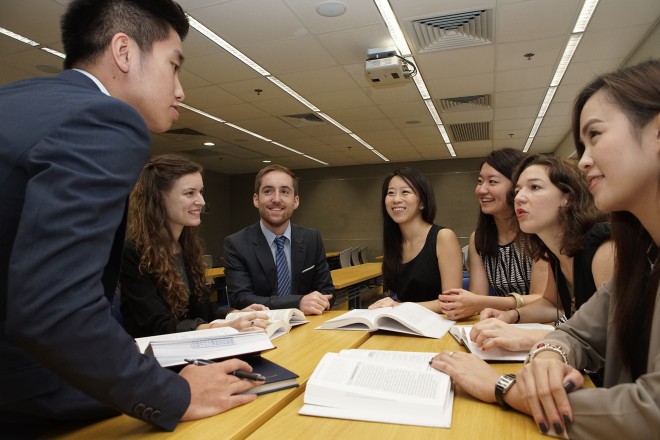
Changing Paths: Law as a Second Career - CUHK LAW JD Programme
[Sponsored Article]
Designed specifically for graduates with a first degree in other fields, the Juris Doctor (JD) programme offered by The Chinese University of Hong Kong’s Faculty of Law (CUHK LAW) enables a change of direction and opens up a host of new career opportunities.
Each academic year, the programme attracts around 1,000 applications and admits roughly 130 students to the two-year, full-time mode and around 65 to the part-time mode. The latter usually takes 42 months, but can be extended if necessary, making it possible to fit classes around other work and family commitments.
For applicants, the main requirements are a good non-law (or non-common law) bachelor’s degree plus a high standard of English. Many applicants have five or more years’ professional experience in areas like banking, financial services, government, engineering, the airline industry, pharmaceuticals or medicine – and are keen to take on a new challenge, for personal and career development, or a change in career.
“The JD is ideal for people switching into law as a second career, who want to qualify to practise in Hong Kong,” says Professor Lutz-Christian Wolff, Wei Lun Professor of Law and Dean of CUHK LAW. “This is a high-quality programme taught by first class professors for elite students. It is intellectually challenging and lets individuals develop themselves.”


Besides that, CUHK LAW regularly invites senior practitioners from leading law firms to teach specialist courses or deliver guest lectures. This enables students to get a fuller appreciation of the practicalities of legal work – and how they are changing – as well as the chance to quiz some of the top people in the field.
JD classes are held at the CUHK Graduate Law Centre in Central, using a mix of traditional lectures, tutorials, small group discussions, and other interactive teaching modes. Increasingly, professors are also adopting the “flipped classroom” concept where lectures are available online, backed up by videos and learning platforms, with class time then used for interactive debates and problem-based learning.
A rigorous assessment regime guarantees steady progress and high standards. It also ensures that students meet predetermined learning outcomes for each course and - the formative aspect - that they learn from errors and move on.
“I find our students are very focused; they want to make a fast transition and join the profession,” says Elliot Fung, JD Programme Director and Professional Consultant at CUHK LAW. “They decided to switch to law because they feel a calling. They also know the profession is widely respected and a law degree can open up a lot of other career options.”

The Career Planning and Professionalism Office, which is led by a Queen’s Counsel (QC), also assists with one-on-one meetings about CV-writing, advice on which firms to target, and internships or mini pupillages.
As part of the programme, mock court competitions allow students to test their advocacy skills by preparing and arguing hypothetical cases. And, to broaden their experience in other ways, they are encouraged to apply for overseas exchanges or short-term study tours at partner universities.

“The JD is a programme that caters to the needs of the fast changing legal market,” Fung says. “It gives a perfect foundation to build for a second career in law.”

